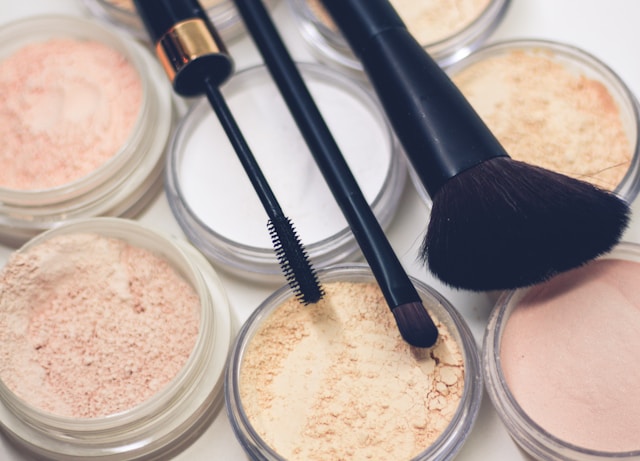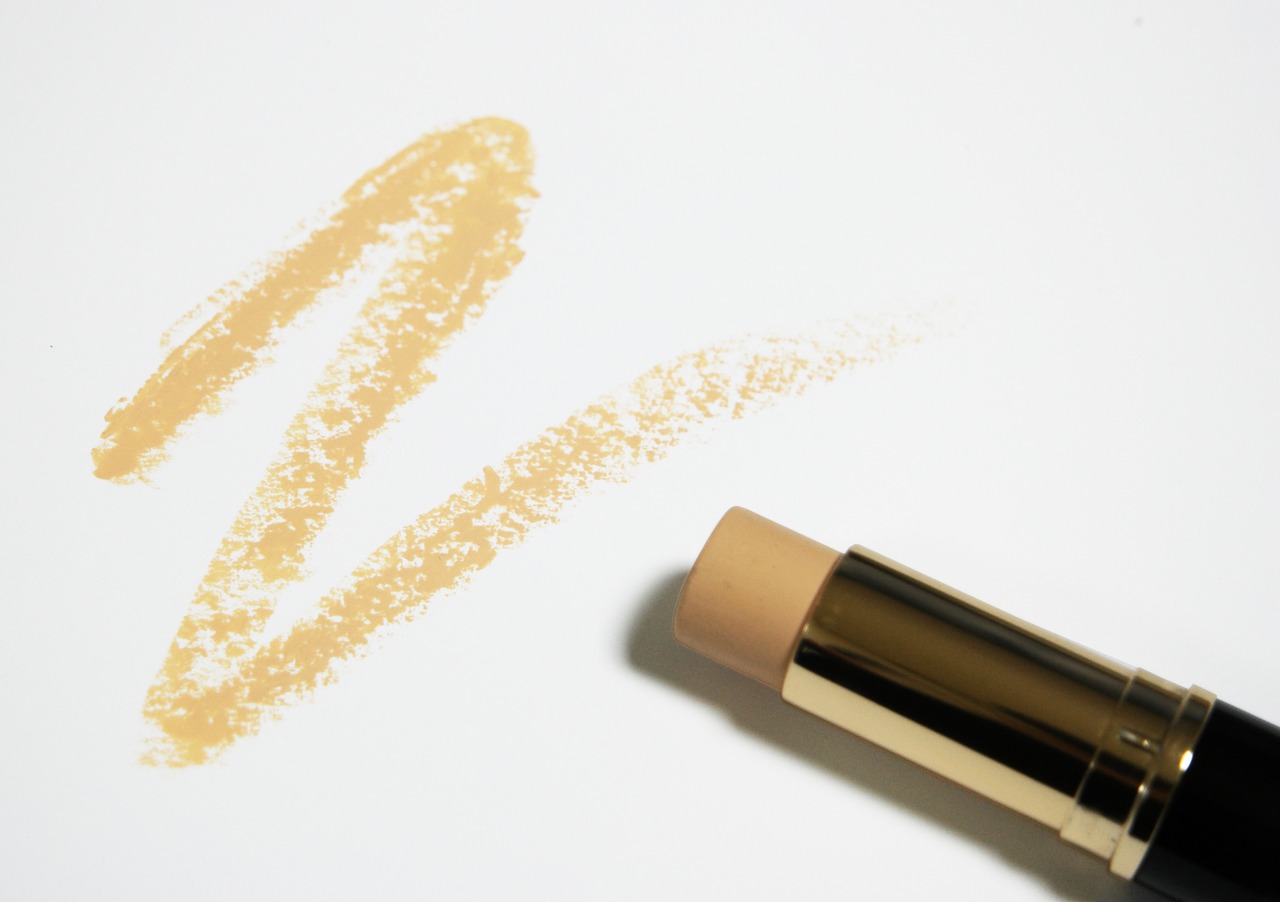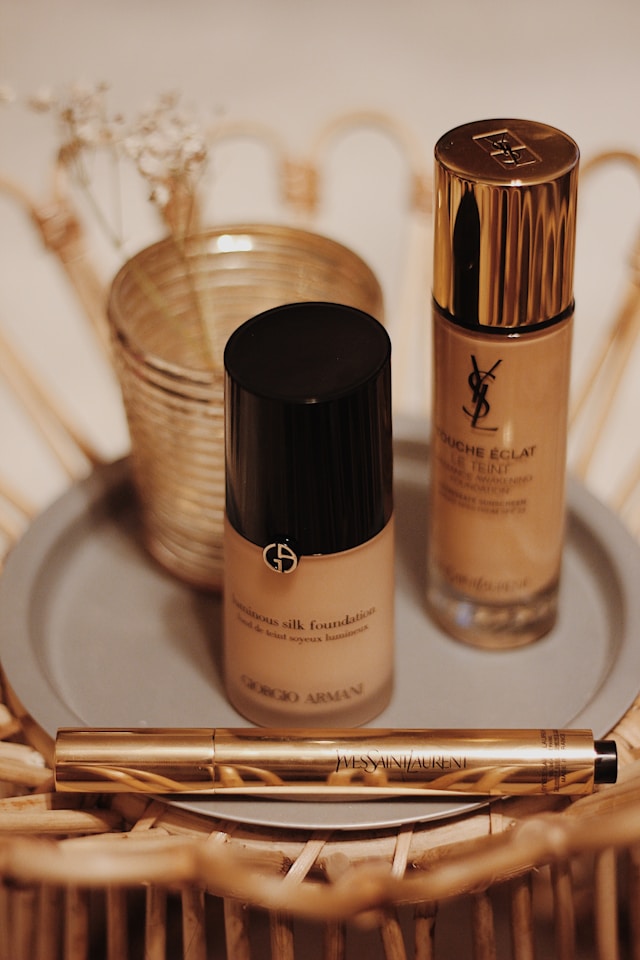Choosing a foundation for makeup is an art, requiring a deep understanding of your skin type and how specific product formulations can blend with its colour and texture. A foundation product does not just mask imperfections, but also protects the skin from the negative effects of the environment. A competent selection of such a product can radically transform your look, highlight your natural attractiveness and even boost your self-confidence. Let’s take a detailed look at how to find the perfect foundation for makeup, emphasising the main points.
A breakdown of skin types

Understanding your skin type is extremely important when choosing the perfect foundation. Your skin type directly affects your interaction with a cosmetic product and can dramatically affect the final visual effect. Let’s take a closer look at each skin type so you can determine which product will be the best choice for you.
Dry skin
Features: Dry skin often feels tight and flaky, especially after washing. It may look matt due to lack of oil and moisture.
What to look for: Moisturising and nourishing foundation formulas that help you retain moisture in your skin will suit you. Ingredients like hyaluronic acid and glycerin draw moisture to the skin and retain it, preventing dryness. Tonal creams with a creamy texture or glowy finish can also give your skin a healthy and moisturised look.
Oily skin
Features: Oily skin is usually shiny due to excess sebum and can be prone to acne and enlarged pores.
What to look for: Look for mattifying foundations that can help control excess shine and oiliness throughout the day. Formulas that contain silicone or powdery ingredients can help visually smooth pores and reduce shine. Lightly textured foundations or oil-free options are also preferable as they will not clog pores.
Combination leather
Features: This skin type combines the features of oily skin (usually in the T-zone – forehead, nose, chin) and dry or normal skin on the rest of the face.
What to look for: You need a product that provides a balance between mattifying in oily areas and moisturising dry areas. Foundations with versatile formulas that can adapt to the different needs of your skin will be ideal. Look for products with light to medium coverage that can be layered to achieve the desired effect.
Sensitive skin
Features: Sensitive skin reacts with redness, irritation or itching to many cosmetic products and external factors.
What to look for: Choose hypoallergenic formulas without perfumes, parabens or other potentially irritating ingredients. Foundations with soothing ingredients, such as aloe vera or calendula, can help reduce the risk of irritation. It is also important to look out for products labelled ‘for sensitive skin’ to minimise the chance of a negative reaction.
Choice of shade

Choosing the right shade is key. The shade should match your natural skin tone as closely as possible. Test the foundation on your jaw line in natural light to make sure it blends perfectly with your skin tone.
Testing in natural light
Always test foundation on your jaw line in natural light, as artificial lighting in shops can distort the colour perception. Apply a little product and blend out. The ideal shade should blend into your natural skin tone, making the transition imperceptible.
Comparison of several shades
It is recommended to test several close shades at the same time to get a better idea of which one is best. Apply strips of the tested foundations next to each other on the jaw line and compare them in natural light.
Accounting for changes in skin colour
Remember that your skin colour can change depending on the time of year or other factors such as tanning. You may need different shades for different seasons or events.
Request for assistance
If you’re unsure about which shade to choose, don’t hesitate to ask the in-store consultants for help. They can offer a professional assessment and help you find the perfect shade.
Consideration of the type of lighting
In addition to natural light, think about the kind of lighting you are in most often. For example, if you spend a lot of time in an office with artificial light, make sure your foundation looks good in those conditions as well.
Use of samples
Most shops offer foundation samples that you can take with you and test in different conditions before buying a full-size product.
Formula and texture

Choosing the formula and texture of your foundation plays a key role in achieving your desired makeup effect, as well as ensuring the health and comfort of your skin. Let’s take a closer look at how different types of foundations work with different skin types and what additional ingredients can enhance your look and care for your skin.
Liquid Make-up Bases
Characteristics: Liquid foundations are available in a variety of coverage levels from subtle to intense, suitable for almost all skin types. Thanks to their fluid texture, they are easy to apply and can be applied evenly to the skin for a natural-looking effect.
- For dry skin, we recommend liquid foundations enriched with moisturising ingredients such as hyaluronic acid, which effectively retain moisture.
- For oily skin, it is better to choose options with a mattifying effect that helps control excess shine and is oil-free.
- For combination skin, go for formulas that provide light moisturisation without feeling heavy on the skin.
Cream foundations
Features: Cream foundations are the ideal choice for dry or mature skin due to their rich, nourishing consistency and ability to offer abundant coverage. They are able to camouflage fine lines and unevenness, leaving the skin looking even and radiant.
- Nourishing ingredients, including vitamins E and C, as well as shea and avocado oils, further moisturise and protect the skin thanks to antioxidant properties.
Powder foundations
Features: Powder foundations are great for oily and combination skin, providing a matte finish and helping to control excess sebum production. The lightweight powder texture won’t clog pores and creates a light coverage that can be layered for more density.
- Mineral formulations are often used in powder foundations, providing natural coverage and reducing the risk of skin irritation.
Composition check
When choosing a foundation, it is important to pay attention to the composition. Products with added SPF provide additional UV protection, which is crucial to prevent premature skin aging. Antioxidants such as vitamins A, C, and E fight free radicals, protecting the skin from external damage and improving its overall health. Moisturising ingredients help to maintain moisture balance in the skin, making it more supple and healthy.
Tips for shoppers
Know your skin type and skin tone
Before making a purchase, it’s critical to understand your skin type – whether dry, oily, combination or sensitive – and to determine its undertone, which can be warm, cool or neutral. This information will be the key to choosing the perfect texture and colour of foundation to perfectly match your unique needs.
Daylight hue assessment
It is best to match your foundation shade in daylight, as artificial light can distort its true colour. Apply a small amount of makeup to the jaw area to see how it harmonises with your natural skin tone.
Take your time choosing
Allow a little time for the foundation to “settle” on the skin. Sometimes the colour may change slightly after drying. This is especially important for liquid and creamy textures.
Take into account the lighting you are most likely to be in
If you spend most of your time under artificial light, pay attention to how your foundation looks under these conditions. What looks perfect outdoors in daylight may look different in the office.
Note the composition
Choose products with caring ingredients such as SPF, antioxidants and moisturising ingredients. This will not only help you create beautiful make-up, but also protect your skin from environmental damage.
Analyse reviews and testimonials
Before buying, study product reviews online and pay attention to recommendations from professional makeup artists. This can help you avoid common mistakes and find a product that really works.
Don’t be afraid to ask for samples
Many shops offer free foundation samples, allowing you to test the product at home and in different lighting conditions. This is a great way to make sure the cream is right for you before making a purchase.
Choosing the perfect foundation takes time and patience, but the right product can be an essential element of your daily skincare and make-up routine. By following these tips, you will be able to find a foundation that is perfect for your skin, enhances its appearance and provides extra care.
Choose a new foundation and enjoy the benefits of discounts from reBITme.com. Good luck with your choice!





